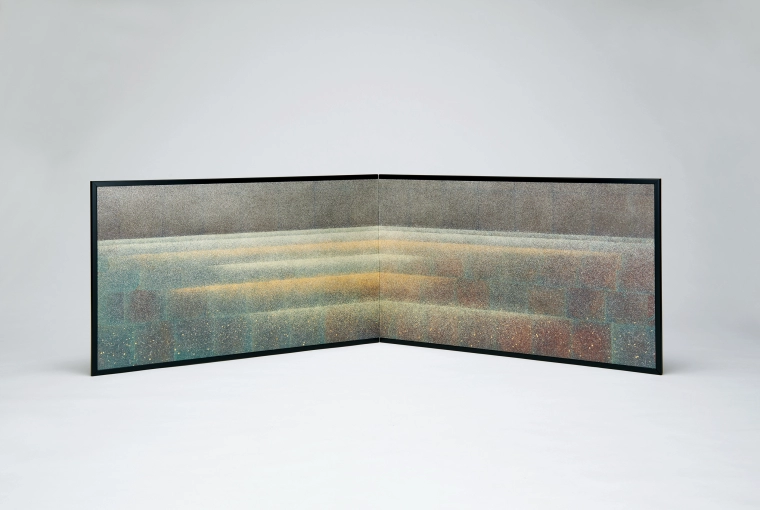Screen for tea ceremony brazier with sunago. “Vast sea”
H 54.0 x W 188.0 cm,Year.2022Yumiko Nagaoka
1967 -- Sunagowork
- Price Range Please Inquire
- Awards at Japan Kōgei Assoc. Exhibitions : 2
Description
-
CategorySunagowork
-
DimensionsH 54.0 x W 188.0 cm
-
Year presented2022
-
RarityUnique
Techniques Used
Sunagowork
Sunago is a traditional technique to draw patterns with gold and silver leaf made into fine, sand-like powder using a bamboo cylinder with a mesh net set in the bottom.
The gold / silver powder is dusted on to a sheet of paper where animal glue is applied, and is pressed down lightly with Japanese paper.
Sunago has been used to decorate picture scrolls and writings such as handwritten copies of sutras since the end of the Heian period (794 - 1185), and in the Edo period (1603 - 1868), it was also used to decorate folding screens and fusuma (sliding paper doors) paintings. Today, sunago techniques are used for decorating fusuma and other crafts such as furosaki byobu, a folding screen used for a summer-style tea ceremony.
Selected exhibitions
- The 69th Japan Traditional Kōgei Exhibition (2022)
- Selected

